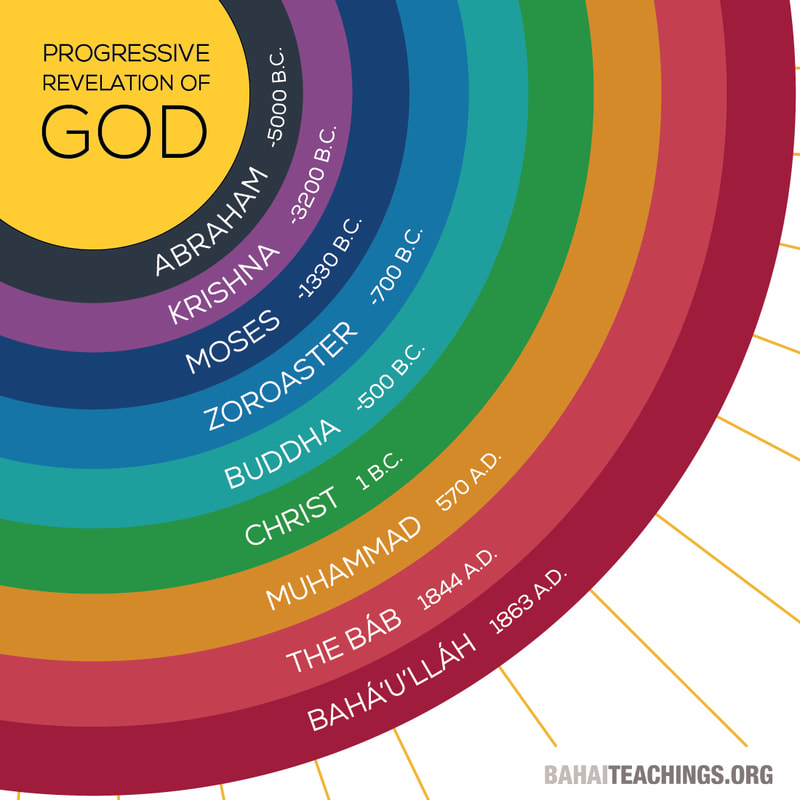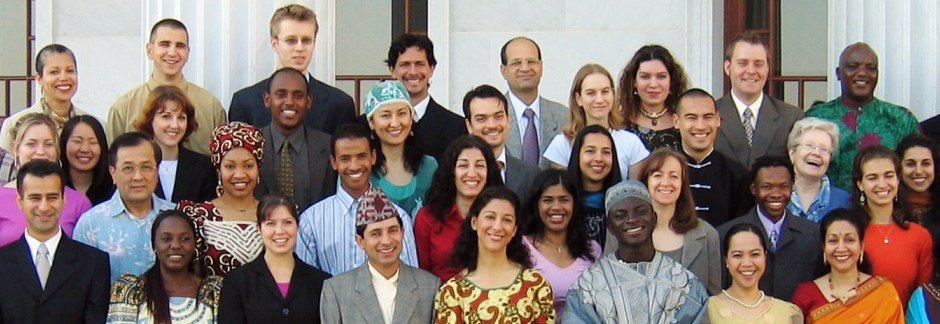Baha'i and Unitarian Universalism
religions of "oneness and manyness"
Baha'i and Unitarian Universalism are among the seventeen living traditions that inhabit the American Religious landscape. The others are Afro-Caribbean, Buddhism, Christianity, Confucianism, Daoism, Jainism, Judaism, Hinduism, Humanism, Islam, Native Religions, Paganism, Sikhism, Shintoism, and Zoroastrianism. In texts on the world's religions they are sometimes presented as two primary examples of relatively new religious movements that emphasize universal human values in a culturally diverse world.
Introductory Essays on Baha'i
|
Introductory Essays on Unitarian Universalism from the Pluralism Project at HarvardIntroductory VideosSeven Principles and Six Sources of
|
What Unitarians and Bahai's have in Common: From a Baha'i Perspective
by Dave Langness, Bahaiteachings.org (12/1-2018)
- Both Unitarians and Baha’is believe in an independent search for truth:
- We believe in the never-ending search for truth. If the mind and heart are truly free and open, the revelations that appear to the human spirit are infinitely numerous, eternally fruitful, and wondrously exciting. – What Do Unitarian Universalists Believe, by David O. Rankin, p. 2.
- No man should follow blindly his ancestors and forefathers. Nay, each must see with his own eyes, hear with his own ears and investigate independently in order that he may find the truth. The religion of forefathers and ancestors is based upon blind imitation. Man should investigate reality. – Abdu’l-Baha, Divine Philosophy, p. 25.
- Both Unitarians and Baha’is believe in the freedom of expression:
- We believe in the freedom of religious expression. All individuals should be encouraged… to present openly their religious opinions without fear of censure or reprisal. – Rankin, p. 2.
- Let us also remember that at the very root of the Cause lies the principle of the undoubted right of the individual to self-expression, his freedom to declare his conscience and set forth his views. – Shoghi Effendi, Baha’i Administration, pp. 63-64.
- Both Unitarians and Baha’is believe in love:
- We believe in the motive force of love. The governing principle in human relationships is the principle of love, which always seeks the welfare of others and never seeks to hurt or destroy. – Rankin, p. 4.
- Reality is love, ever working for the welfare of humanity. Reality is the bond which conjoins hearts. This ever uplifts man toward higher stages of progress and attainment. – Abdu’l-Baha, The Promulgation of Universal Peace, p. 375.
- Both Unitarians and Baha’is believe in the essential goodness and harmony of all Faiths:
- We believe in the toleration of religious ideas. All religions, in every age and culture, possess not only intrinsic merit, but also potential value for those who have learned the art of listening. – Rankin, p. 2.
- From the days of Adam until today, the religions of God have been made manifest, one following the other, and each one of them fulfilled its due function, revived mankind, and provided education and enlightenment … The religion of God is one religion, but it must ever be renewed. – Abdu’l-Baha, Selections from the Writings of Abdu’l-Baha, pp. 51-52.


